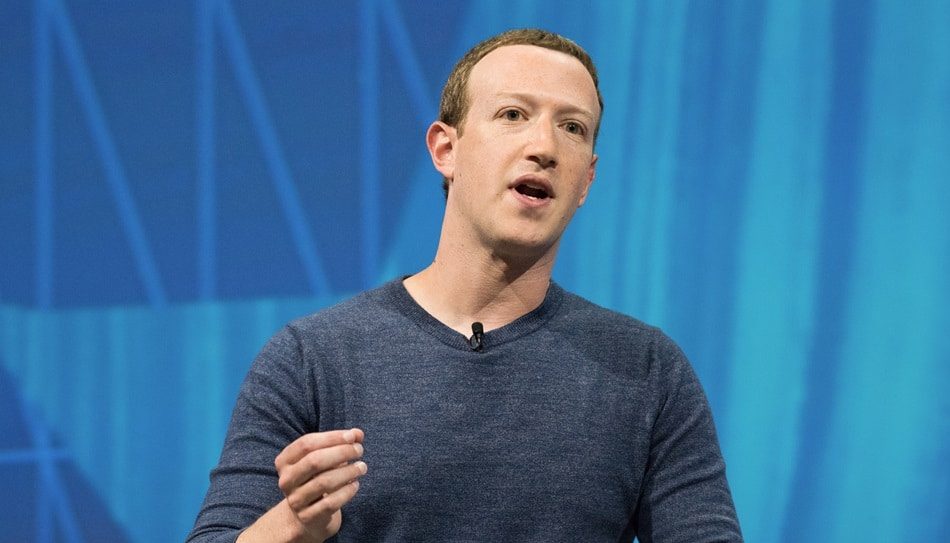Meta boss Mark Zuckerberg has claimed the White House pressured the social media giant to censor Facebook content about Covid-19.
In a recent interview, Zuckerberg said the government exerted significant influence over what information was allowed on the platform. This raised concerns over free speech and government intervention in digital spaces. The allegations have sparked a renewed debate over the role of social media companies in moderating content.
The claims also come amid ongoing scrutiny of Big Tech’s power and its relationships with government entities.
Zuckerberg’s Allegations
Government Pressure During the Pandemic
Zuckerberg alleged the White House, under both the Trump and Biden administrations, applied pressure on Facebook to suppress certain types of content related to COVID-19.
This included posts and articles that questioned the efficacy of vaccines or raised concerns about the origins of the virus. He claimed there was also pressure to hide content on alternative treatments that were not endorsed by public health authorities.
Zuckerberg indicated Facebook’s content moderation policies were influenced by this government pressure. He said this led to the removal or downranking of content deemed to be “misinformation” by officials. He expressed concern this level of government involvement could set a dangerous precedent for free speech. There is also a fear over the autonomy of private companies in content moderation.
The Guardian reported Zuckerberg wrote to Jim Jordan, the head of the US House of Representatives.
He wrote:
“In 2021, senior officials from the Biden administration, including the White House, repeatedly pressured our teams for months to censor certain Covid-19 content, including humour and satire, and expressed a lot of frustration with our teams when we didn’t agree.
“I believe the government pressure was wrong.”
In a recent interview, Zuckerberg added:
“I think we made some choices that, with the benefit of hindsight and new information, we wouldn’t make today.
“I regret we were not more outspoken about it.
“Like I said to our teams at the time, I feel strongly that we should not compromise our content standards due to pressure from any administration in either direction. And we are ready to push back if something like this happens again.”
The Balance Between Public Health and Free Speech
The Meta CEO’s comments highlight the difficult balance social media companies have had to strike during the pandemic.
On one hand, platforms like Facebook have faced calls to curb the spread of misinformation that could undermine public health efforts.
On the other , there is a growing concern excessive censorship, particularly when driven by government pressure, could infringe on users’ rights to free expression.
Zuckerberg acknowledged the challenges of moderating content during a global crisis but questioned whether the level of government influence was appropriate.
He said platforms have a responsibility to protect public health. But he added they must also ensure they are not infringing on individual freedoms or becoming tools of government overreach.
Reaction and Implications
Renewed Debate Over Big Tech’s Role
Zuckerberg’s allegations have reignited the debate over the role of Big Tech companies in shaping public discourse, particularly during times of crisis. Critics of government intervention argue that social media platforms should remain independent in their content moderation decisions to protect free speech.
However, others believe that platforms have a duty to prevent the spread of harmful misinformation, even if that means collaborating closely with government agencies.
The revelation also comes at a time when Meta, along with other tech giants, is under intense scrutiny from lawmakers and regulators around the world.
Issues such as data privacy, market dominance, and content moderation have placed Big Tech at the center of political and social debates, with calls for greater regulation and oversight.
Potential Legal and Political Fallout
The claims made by Zuckerberg could have significant legal and political ramifications.
If it is proven that the White House exerted undue influence over Facebook’s content moderation practices, it could lead to legal challenges and further investigations into the relationship between the government and social media platforms. It may also lead to renewed discussions about the need for clearer guidelines and regulations governing the interaction between social media companies and government agencies.
Need Career Advice? Get employment skills advice at all levels of your career
Looking Forward: The Future of Content Moderation
Striking the Right Balance
The issues raised by Zuckerberg’s comments underscore the ongoing challenges of content moderation in the digital age. As social media platforms continue to play a central role in public discourse, finding the right balance between preventing the spread of harmful content and protecting free speech will remain a critical issue.
For Meta and other tech companies, the focus will likely be on developing more transparent and accountable content moderation policies that can withstand public and legal scrutiny. This may involve creating clearer distinctions between content that violates community standards and content that is censored due to external pressures.
The Broader Implications for Tech Regulation
Zuckerberg’s allegations could also influence future regulatory efforts aimed at Big Tech. As governments around the world consider new laws and regulations for digital platforms, the question of how much influence government entities should have over content moderation will be a key consideration.
The situation highlights the complex and often contentious relationship between technology companies and government bodies in the modern information age.
As the debate continues, it will be crucial for all stakeholders to work towards solutions that uphold both public safety and the fundamental principles of free speech.




